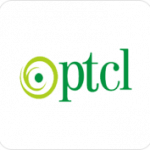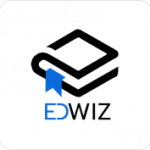EdTech for Business Growth
Make Use of EdTech for Business Growth with RedMarker Systems
Empower your organization with EdTech for business growth to unlock new levels of employee performance and organizational success. At RedMarker Systems, we provide state-of-the-art technology, intuitive platforms, and a comprehensive suite of tools designed to optimize HR development, streamline recruitment processes, and foster sustainable growth. Our innovative solutions enhance employee skills, improve efficiency, and uplift workplace morale, driving impactful results for your business.
Enhance HR Development with EdTech for Business Growth: We understand that HR development is critical to the success and growth of any business. RedMarker’s EdTech for business growth equips your HR departments with essential online tools to evaluate and enhance employees’ skill levels effectively. With fair assessments and tailored evaluation methods, you can build a strong, skilled team to remain competitive in today’s dynamic business environment.
Unlock Your Exam Success with Tailored Test Prep Materials
We provide students with PMP, IELTS, PPSC, FPSC, PMS, and other test prep materials. It helps them prepare for their exams by offering a variety of practice tests, quizzes, and study materials. We further enhance online assessment and preparation usefulness for candidates of PMP, IELTS, PPSC, PMS, etc. exams by incorporating the following features:
Adaptive Learning: Our online assessment platform uses data analytics to identify areas where candidates struggle and provide personalized learning materials to improve their weak areas.
Virtual Tutoring: It offers sessions with experienced tutors who can help candidates with specific questions or topics they may struggle with.
Exam Simulation: It simulates the actual exam experience by offering full-length mock tests replicating the format and difficulty level of the actual exams.
Collaboration Tools: It includes collaboration tools that allow candidates to interact with other students or instructors, share study materials, and discuss topics related to the exams.
Progress Tracking: It includes a dashboard that tracks the candidate’s progress, identifies areas of improvement, and provides feedback on their performance. This will help candidates stay motivated and focused on their goals.
Key Features & Benefits
Our online proctoring system ensures the integrity of online exams by using AI-based monitoring and recording.
Our digital assessment solutions are customizable to be used by large corporations, educational institutions, and Government organizations for their HR development.
We offer a wide range of e-assessment and testing services, including test development, administration, and scoring.
We understand that every business is unique, so we offer custom e-learning solutions tailored to meet the specific needs of EdTech for businesses.
Our EdTech services automate many tasks and processes, such as online training for HR development, saving businesses time and money.
Our EdTech for businesses provide employees with opportunities for ongoing learning and professional development, which help increase their engagement and motivation and reduce turnover.
Businesses improve the skills and performance of their employees, which help them stay competitive in today’s fast-paced and ever-changing business environment.
EdTech solutions often come with data collection and analysis features, allowing businesses to track instructors’ progress, monitor and adjust training effectiveness, and make data-driven decisions.
Why RedMarker for business?
RedMarker’s EdTech for business provides a creative solution for businesses to optimize operations and enhance their candidates’ learning experiences. With its advanced technology and intuitive interface, businesses can easily manage their day-to-day operations. From HR development to recruitment processes, RedMarker’s EdTech streamlines all aspects of businesses. Moreover, the platform’s personalized approach helps employees to learn at their own pace and track their progress. With its robust analytics capabilities, businesses can evaluate employees’ performance, optimize HR strategies and enhance the overall quality of employment.
Testimonials
"RedMarker's EdTech solutions have revolutionized how we train and develop our employees. The user-friendly platform offers a wide range of tools and resources that have helped us improve trainer performance and drive business growth."
"RedMarker's EdTech for business has been an invaluable asset for our company. The innovative platform provides many resources that have helped us improve teacher performance, streamline training, and drive business growth."
"We have been using RedMarker's EdTech for business for several months, and the results have been outstanding. The platform is user-friendly, and the training materials are tailored to meet the specific needs of our business. We have seen a significant improvement in educator performance and overall business efficiency."
Our Partners








FAQs
EdTech for business refers to using technology and educational strategies to enhance the learning and development of employees in a business context. It can include various tools and approaches, such as online courses, video tutorials, virtual simulations, gamification, and personalized learning experiences.
EdTech helps businesses by providing innovative tools and resources for employees to enhance the learning experience. These tools help to increase engagement and motivation, facilitate collaboration and communication, provide real-time feedback, and create personalized learning pathways. EdTech also saves time and resources by automating administrative tasks such as grading, tracking employees’ progress, and storing data securely.
RedMarker’s EdTech for business is scalable and flexible, allowing businesses to train many employees simultaneously, regardless of location or schedule. This can help to increase the efficiency and effectiveness of the training and save time and resources for the business.
EdTech for business brings numerous benefits to businesses. It helps streamline operations, reduce costs, increase productivity, and provide valuable insights into employees' performance and engagement. For example, by using EdTech for business, businesses easily manage track finances and analyze data to identify areas for improvement.

